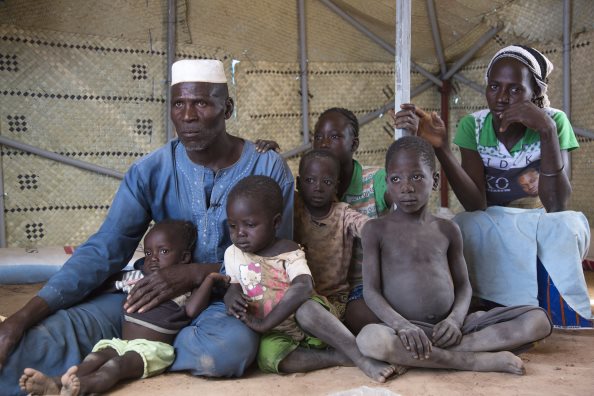Burkina Faso at Epicentre of Dramatic Humanitarian Crisis Gripping Central Sahel

OUAGADOUGOU – The United Nations World Food Programme (WFP) today warned of an escalating humanitarian crisis driven by widespread violence and the long-term impact of climate change that has gripped Burkina Faso and neighboring countries in the Central Sahel region of West Africa. WFP said the humanitarian response needed to be rapidly escalated to protect and save lives in Burkina Faso and the wider region.
“A dramatic human crisis is unfolding in Burkina Faso that has disrupted the lives of millions. Close to half a million people have been forced from their homes and a third of the country is now a conflict zone,” said WFP’s Executive Director, David Beasley. “Our teams on the ground are seeing malnutrition levels pushed well past emergency thresholds – this means young children and new mothers are on the brink. If the world is serious about saving lives, the time to act is now.”
There has been a sharp increase in violence in Burkina Faso – the number of attacks in the first half of 2019 surpassed the total for 2018, with reported civilian deaths four times the total recorded in 2018. The escalating levels of insecurity have led to schools being closed and farmers abandoning their fields in search of safety – this in a country where 4 out of 5 people rely on farming for their livelihoods.
The impact on the now 20 million people living in conflict areas across the region is dramatic. At least 486,000 people have been forced to flee their homes in Burkina Faso alone, bringing the total number of internally displaced people across the three Sahelian countries to 860,000 people. Meanwhile, 2.4 million people need food assistance in the Central Sahel – a figure that could rise due to continued displacements.
WFP and other humanitarian agencies are facing the growing crisis at a time when funds to support relief efforts are running low and a substantial injection of new resources is required to meet the growing needs.
Even without the exacerbating impact of insecurity, the Sahel is on the forefront of climate change, and many communities are already having to adapt to an unpredictable climate.
WFP is faced with the immense challenge of simultaneously responding to immediate humanitarian needs, while protecting investments made in community resilience and self-sufficiency to ensure that all the gains made in recent years are not lost.
WFP has stepped up its response, providing more than 2.6 million people with food and nutrition assistance so far this year in the three Central Sahel countries, focusing its efforts on areas where humanitarian needs are most severe and where large-scale population displacements have taken place.
WFP urgently needs $150 million for operations across the Central Sahelian nations of Mali, Niger and Burkina Faso, under existing programs that include both emergency activities and resilience-building programs.
Broadcast quality footage from Burkina Faso available here.
Photos available here, feature-length story here.
WFP’s Director of Emergencies and Country Directors in Burkina Faso and Mali will be available for interviews.
The United Nations World Food Programme – saving lives in emergencies and changing lives for millions through sustainable development. WFP works in more than 80 countries around the world, feeding people caught in conflict and disasters, and laying the foundations for a better future.
Follow us on Twitter @WFUSA @wfp_wafrica @wfp_africa
For more information please contact (email address: firstname.lastname@wfp.org):
Steve Taravella, WFP/Washington | Tel. +1 202 653 1149, Mob. +1 202 770 5993
Shada Moghraby, WFP/New York | Tel. +1 646 5566914, Mob. +1 929 289 9867




